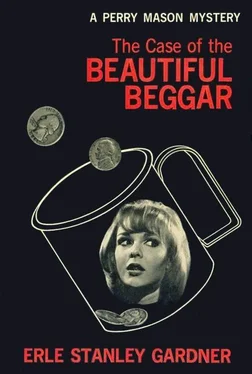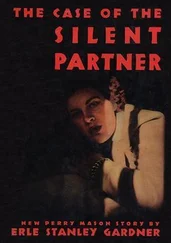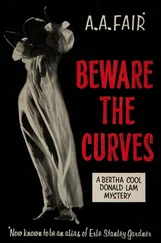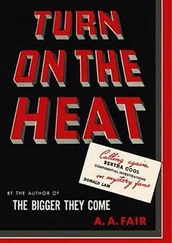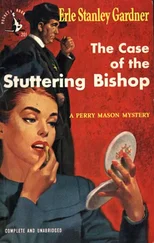Lieutenant Tragg gleefully described the manner in which the malingering of the defendant had been exposed by her own attorney, who was putting her in what she thought was a tub of lukewarm water but was actually ice cold.
Tragg was temporarily withdrawn. A clerk in a drugstore near the Northern Lights Motel identified the glass toothbrush container as being similar to the container in which a toothbrush of a certain standard brand was marketed. He identified the defendant as having stopped in his store earlier that day and purchasing a toothbrush and toothpaste, a hairbrush and comb, a safety razor and shaving cream, and a small plastic bag in which they could be carried. She had explained that her uncle had lost all of his baggage and needed these articles immediately.
The waitress at the Chinese restaurant identified Daphne as being the person who had purchased Chinese food in containers to take out, explaining that she was getting the food for her uncle who was very fond of Chinese food.
The waitress described the manner in which Daphne had waited while the food was being prepared. She was, the waitress said, exceedingly nervous.
Mason listened to these witnesses with a detached air of idle curiosity, as though their testimony not only related to some matter in which he had no interest, but that the testimony itself was immaterial. He didn’t bother to cross-examine any of the witnesses until Lieutenant Tragg had returned to the stand and finished his testimony. Then Mason arose and smiled affably at the police officer.
“You say the pipe which connected the gas heater to the gas supply had been unscrewed, Lieutenant?”
“Yes.”
“And you gave it as your conclusion that this had been done after the decedent had become unconscious from the barbiturates?”
“As an investigating officer, I felt that was a reasonable interpretation,” Lieutenant Tragg said. “The autopsy bears this out with indisputable proof.
“I took into consideration that the unscrewing of such a pipe would be accompanied by considerable noise, and Exeter could hardly have been expected to sit idly by while the preparations for his death were being carried out.”
“Unless, of course, he had committed suicide,” Mason said.
Lieutenant Tragg smiled a triumphant smile. “If he committed suicide, Mr. Mason, he disposed of the weapon, and when we find a missing weapon we usually discount the theory of suicide.”
“Weapon?” Mason asked.
“A small pipe wrench,” Lieutenant Tragg said. “The gas pipe had been joined to the heater so that there would be no leak, and it took a pipe wrench to loosen a three-inch section of the connecting pipe. There was no wrench in the room.”
“Ah, yes,” Mason said, affably, “I was coming to that, Lieutenant. You’ve anticipated the point I was going to make. It took a pipe wrench to loosen the gas feed line?”
“Yes, indeed.”
“In order to prevent leaks, these lines are customarily screwed up very tight?”
“Yes, sir.”
“Sometimes with a compound which furnishes a seal and prevents leakage?”
“That’s right.”
“And in order to loosen this pipeline, it took considerable force, did it not?”
Tragg avoided the trap. “Quite a bit of force,” he admitted, “but nothing that a reasonably strong young woman in good health couldn’t have done, if that’s what you’re getting at.”
“That’s not what I’m getting at, Lieutenant,” Mason said. “The point is that a pipe wrench has to bite into the pipe in order to get a firm enough hold in order to unscrew the pipe.”
“That’s right.”
“Now, these pipe wrenches have jaws with sharp ridges on them so that when pressure is applied to the handle the jaws tighten and the corrugations or ridges on the jaw bite into the pipe enough to keep the pipe from slipping. Is that right?”
“Yes, sir.”
“And it is because you found indentations in this pipe that you knew it had been loosened with a pipe wrench?”
“Yes, sir.”
“Now then, did you photograph these marks on the pipe, Lieutenant?”
“Photograph them?”
“That’s right.”
“No, sir, why should I have photographed them?”
“Did you then disconnect the pipe so that it could be used as evidence?”
“Certainly not. Gas was escaping. We reconnected the pipe just as promptly as possible.”
“But you did notice these marks on the pipe?”
“Yes, sir.”
“Didn’t it occur to you, Lieutenant, that those marks which were on the pipe might be very significant?”
“Certainly, it did. They were significant in that they showed a pipe wrench had been used, and that’s the extent of their significance.”
“Did you,” Mason asked, “examine those marks under a microscope?”
“I did not.”
“Under a magnifying glass?”
“No, sir.”
“You knew, did you not, Lieutenant, that in the case of chisels or knives being used on wood it quite frequently happens that some blemish in the blade leaves an imprint in the wood so that the instrument used can be identified?”
“Certainly, anyone knows that.”
“But did you also realize, Lieutenant, that on some of these pipe wrenches one of the ridges on the jaws becomes damaged or nicked so that that wrench leaves an indelible identifying mark upon any pipe on which it may be used?”
Lieutenant Tragg’s face showed that he suddenly realized the point that Mason was making and its significance.
“We didn’t remove the pipe,” he admitted. “It’s still there in its original condition.”
“It has, however, been screwed back into the appliance?”
“Yes, sir.”
“And as of this date, Lieutenant, you don’t know whether there were any distinctive markings in the indentations on that pipe which would give an indication of the wrench that had been used in unscrewing it?”
Lieutenant Tragg shifted his position, then finally said, “I will admit, Mr. Mason, that you have a point there. I don’t know. I will also admit that perhaps the better practice would have been to have examined those markings carefully under a microscope. I have always tried to be fair. The investigation of a crime is frequently a scientific matter. I will admit in this case it would have been better practice to have examined those indentations with a magnifying glass, and in the event any distinctive marks had been found, to have photographed them.”
“Thank you very much for a very impartial statement, Lieutenant Tragg. I have always appreciated your integrity, and I now appreciate your fairness. I have no further questions.”
Judge Kyle said, “Well, gentlemen, it seems we have covered a lot of ground today. I assume that the case can be finished in a few hours tomorrow?”
“I would think so,” the deputy district attorney said.
“Very well,” Judge Kyle said, “it’s the hour of the evening adjournment and Court will adjourn until tomorrow morning at nine-thirty. The defendant is-remanded. Court’s adjourned.”
Back in his office, Mason found Paul Drake with a supplemental report on Horace Shelby.
“The guy’s doing pretty good,” Drake said. “He’s down there in Ensenada soaking up sunlight, walking around with a lot more assurance than when he first arrived, and he seems to be enjoying himself.”
“Anybody talk with him yet?” Mason asked.
“Not as an interview. But one of my men managed to engage him in conversation when Shelby was taking a stroll down on the wharf, and he reports the man is bright as a dollar.”
Mason sighed. “All right, I guess he can stand another shock by this nine.”
“You going down?”
“I’m going down,” Mason said. “I’ll have ‘Pinky’ fly me by fast twin-motored plane to San Diego, then pick up Francisco Munoz at Tijuana and — Instruct your man to be looking for me. I’ll meet him in front of the motel.”
Читать дальше
